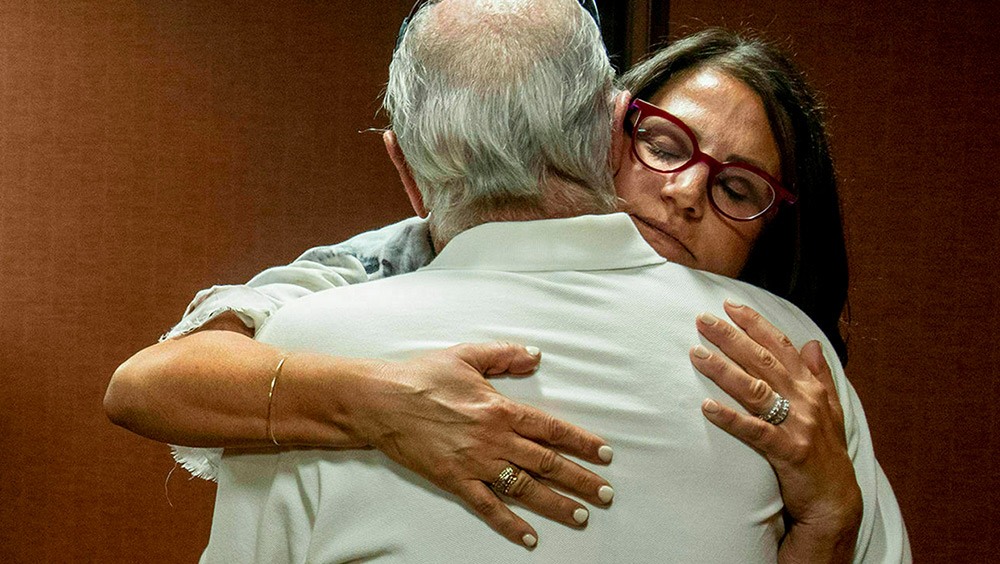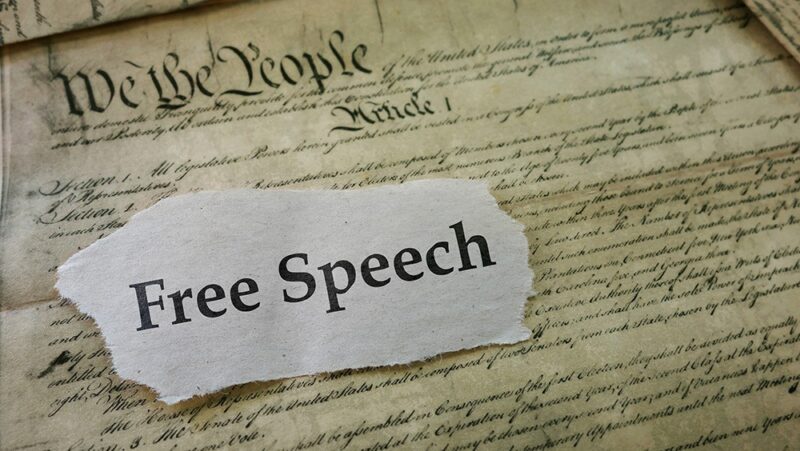What Is Doxing and Is Doxing Illegal? Everything You Should Know

The concept of doxing has been around since the early days of the internet, but it has only grown more prevalent as the internet and social media platforms have developed. But what is doxing, exactly? Is doxing illegal? Is it protected by the First Amendment? We answer these questions, and much more, below.
What is doxing?
Doxing is publishing information that can be used to identify, locate and contact someone without their consent. It usually refers to publishing an individual's home address, email address, phone number and other contact information online.
Doxing is often performed as a form of punishment or revenge. For example, the perpetrators of Gamergate, the online harassment campaign against women in the video game industry, used doxing as an intimidation tactic. In another example, the X account @YesYoureRacist used doxing to shame the white nationalists who marched in the 2017 "Unite the Right" rally in Charlottesville, Virginia, but sometimes ended up identifying the wrong people.
Is doxing illegal in the United States?
In the United States, the act of publishing someone's personal information is not, in and of itself, illegal.
However, the act can lose First Amendment protection if it's part of an effort to truly threaten or harm someone, if it intentionally inflicts emotional distress, or if it invades someone's privacy by revealing a highly offensive personal fact about that person without providing the public information about a matter of public concern.
For example, in 2016, a Montana woman named Tanya Gersh, who is Jewish, became involved in a dispute with the mother of white nationalist Richard Spencer. Andrew Anglin, the founder of the neo-Nazi website the Daily Stormer, published Gersh's name, address and phone number and encouraged his readers to "hit 'em up." Over the next year, Gersh, her husband and 12-year-old son received more than 700 harassing emails, phone calls, texts, voicemails, letters and social media comments, including death threats and antisemitic messages.
Gersh sued Anglin for invasion of privacy, intentional infliction of emotional distress, and violating Montana's anti-intimidation law. Anglin argued that his posts doxing Gersh were protected by the First Amendment, but the court rejected this argument. The court found that Anglin's posts were not protected by the First Amendment because they involved a purely private matter and "did nothing to inform the public about any aspect" of a matter of public concern.
"Anglin did not use his speech about Gersh to raise awareness for issues consonant with the alt-right agenda," the judge wrote in his decision. " … Anglin exploited the prejudices widely held among his readers to specifically target one individual."
Gersh went on to win her lawsuit against Anglin.

Tanya Gersh embraces her father following a hearing for her doxing lawsuit. Credit: Ben Allen/The Missoulian, via AP
When can publishing someone's personal information be protected by the First Amendment?
The First Amendment protects the right to publish newsworthy information. In a 1979 case, Smith v. Daily Mail Publishing Co., the U.S. Supreme Court said that the government cannot punish the media for publishing "truthful information about a matter of public significance" unless it has a "state interest of the highest order."
The Supreme Court has also said that journalists have the right to publish the full name of a child accused of a serious crime (Oklahoma Pub. Co. v. District Court in 1977) or the name of a rape victim (Florida Star v. B.J.F. in 1989), if these disclosures are considered newsworthy.
In the 2001 case Bartnicki v. Vopper, the Supreme Court found that journalists have the right to publish material obtained through illegal means, if they themselves were not directly involved in the illegal activity. The right to publish newsworthy information is strongly protected by the First Amendment.
For this reason, publishing newsworthy personal information about someone is likely to be protected by the First Amendment. For example, during the 2021 mayoral race in New York City, several journalists published stories calling into question whether candidate Eric Adams lived in New York City. These journalists looked at several publicly available documents, such as Adams' campaign finance reports and tax filings. They discovered that while Adams owned homes in New York City and New Jersey, he had claimed on his tax returns that his house in New York City was an investment property and not a home he lived in (Adams later said this was an accountant's mistake). Some of the stories they published included the addresses of Adams' properties, links to the public records containing this information, and photos of the buildings.
These journalists were publicizing personal information about Adams online without his consent. However, this wasn't an attempt to harass the candidate. Rather, they did this to report on a matter of public concern: whether Adams was trustworthy and committed to the city he was seeking to lead.
When is doxing illegal?
Some types of speech are not protected by the First Amendment. The First Amendment does not protect people from being punished for:
- True threats: Knowingly causing someone to fear for their safety.
- Inciting imminent lawless action: Telling people to immediately commit a crime.
This means that doxing someone with the intent to make someone fear for their safety or to incite others to cause them harm can be illegal.
Furthermore, the First Amendment does not protect people from being sued for:
- Publishing highly personal information about someone that's not of legitimate concern to the public.
- Extreme and outrageous speech that is intended to cause, and actually does cause, severe emotional distress.
What's the bottom line about the First Amendment and whether doxing is illegal?
So, is doxing illegal? Sometimes.
As a general rule, publishing information on a matter of public concern will be protected by the First Amendment. But publishing information that isn't a matter of public concern, with the intent to cause someone fear, distress or harm, is much less likely to be protected by the First Amendment and could result in the perpetrator being subject to criminal prosecution or lawsuits.
Lata Nott is a Freedom Forum fellow for the First Amendment.
Perspective: Can the First Amendment Protect Educators from Being Fired for Teaching About Race?
18 Freedom of Speech Quotes You Should Know
Related Content

